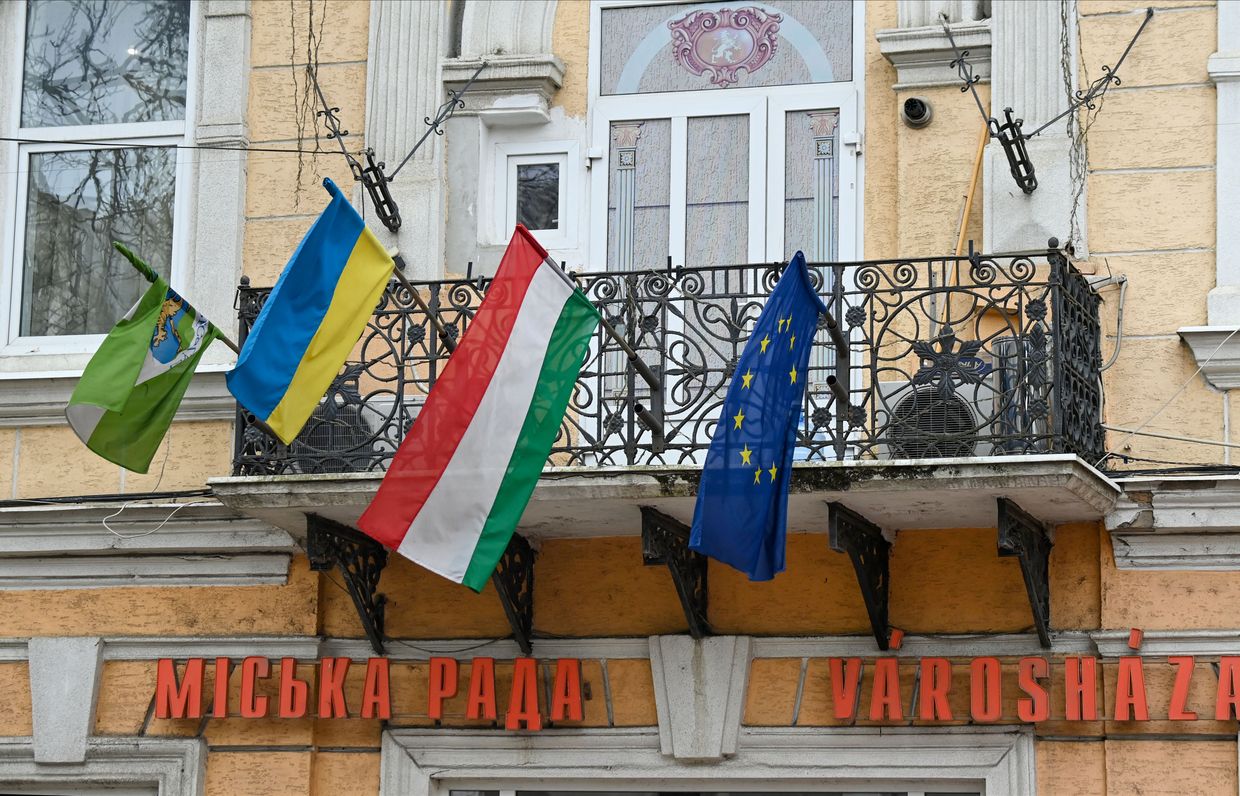Hungarian FM says Ukraine carrying out 'witch hunt' against Hungarian businesses, threatens to block EU aid

Hungarian Foreign Minister Peter Szijjarto said on April 22 that Ukraine is carrying out a "witch hunt" against Hungarian businesses operating in the country, and threatened to block further EU aid unless such policies are changed.
Ukraine's National Agency on Corruption Prevention previously designated Hungary's OTP Bank as an "international sponsor of war." The move prompted protest from Hungary and declarations that it would block aid for Ukraine, and OTP bank was provisionally removed from the list.
Hungary has continued to demand that it receive guarantees that OTP and other Hungarian businesses not be added to the list or be sanctioned.
Szijjarto's latest complaint against Ukraine was in relation to allegations that the country was planning to revoke several of the distribution permits for medicine from the Hungarian pharmaceutical company Richter.
"The Hungarian position remains unchanged and clear. Until we receive a guarantee from the Ukrainian side that they will end and not start again the witch hunt against Hungarian companies active in Ukraine, we cannot contribute to such (further aid decisions)," Szijjarto said.
Hungary has blocked 500 million euros ($532 million) in assistance to Ukraine from the European Peace Facility. Szijjarto said that Hungary would also block a 1.5 billion euro ($1.6 billion) tranche of EU aid from the four-year Ukraine Facility agreed on by all 27 EU leaders, including Prime Minister Viktor Orban, in February.
It is unclear how Hungary would go about trying to block the tranche from the Ukraine Facility, as the aid was already approved over a four-year period and Orban's request to review it on an annual basis was rejected.
Hungary previously said it was blocking the 500 million euros in relation to what it claims are unresolved issues with Ukraine's Hungarian minority. Foreign Minister Dmytro Kuleba said earlier in April that Ukraine was working with Hungary to resolve the issues and unblock the aid.
Kuleba met with Szijjarto in Uzhhorod in Ukraine's Zakarpattia Oblast in January, where the ministers announced an agreement to establish a special commission to deal with the issues of national minorities.













